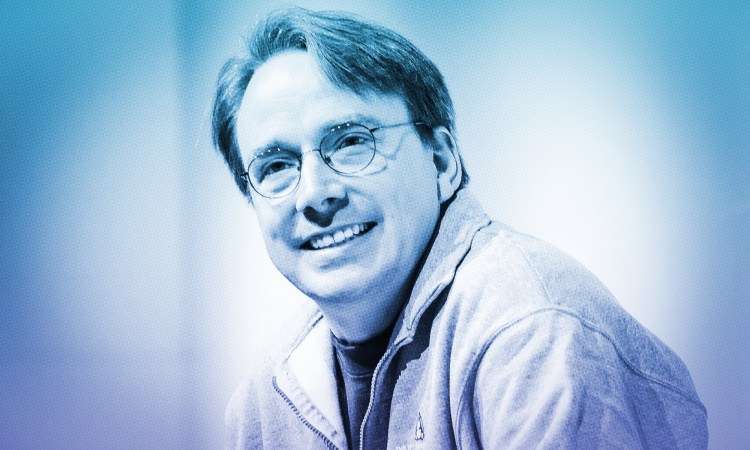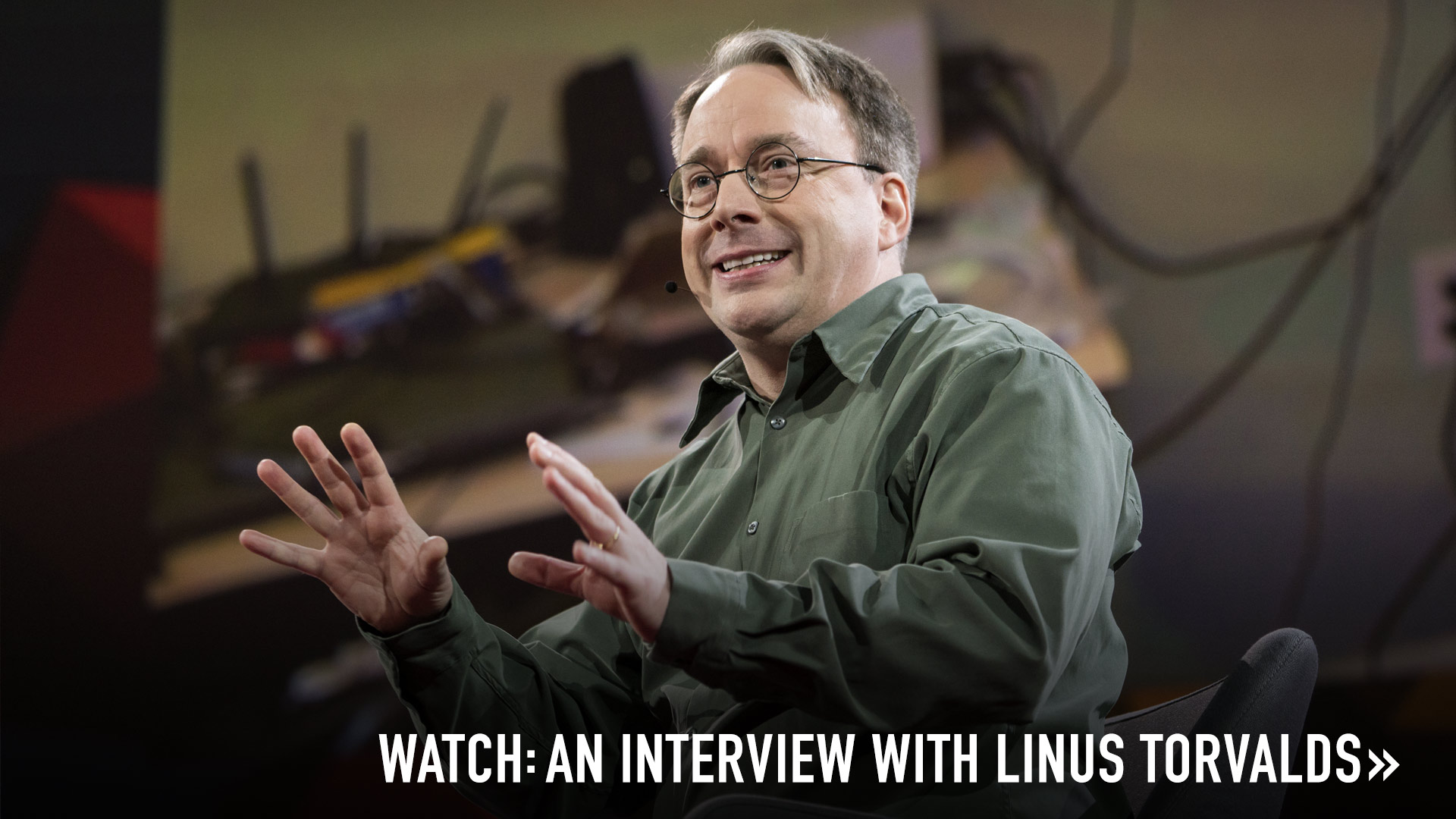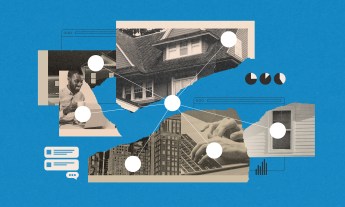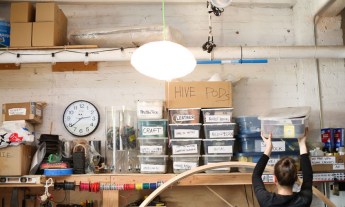
Linus Torvalds might not be a household name, but pretty much everyone should buy him a drink to thank him for his work on software products such as Linux and Git, the foundation of so much of our computer-related work and play today. Of course, if you tried to buy him a drink, he’d be horrified; this is a quiet man who wants nothing more than to get on with his work and have everyone leave him alone. Recently, he spoke with TED curator Chris Anderson; watch the full interview here; or read his (lightly edited) thoughts on everything from management technique to collaboration to the need for the most important desk accessory.
The ideal office design: plain
My office is the most boring office you’ll ever see, and I sit there alone, in the quiet. If the cat comes up, it sits in my lap and I want to hear the cat purring, not the sound of the fans in the computer.
The perfect technology: quiet
The main thing I worry about in my computer is — it doesn’t have to be big and powerful, although I like that. It really has to be completely silent. So I sit in my office, I have a couple of computers. I know people who work for Google and they have their own small data center at home. I don’t do that.
The best colleagues: absent
Really, I work alone in my house, often in my bathrobe. When a photographer shows up I dress up, so I have clothes on, and that’s how I’ve always worked. I mean, this was how I started Linux. I did not start Linux as a collaborative project, I started it as one in a series of many projects I had done at the time for myself, partly because I needed the end result, but even more because I just enjoy programming.
The tipping point of open source
The big point for me really was not when it was becoming huge, it was when it was becoming little. The big point for me was not being alone and having ten, maybe 100 people being involved. That was a big point. Then everything else was very gradual. Going from 100 people to a million people is not a big deal, to me. Well maybe it is if you want to sell your result, it’s a huge deal, don’t get me wrong. But if you’re interested in the technology and you’re interested in the project, the big part was getting the community. Then the community grew gradually, and there’s actually not a single point where I went like, “Wow that just took off,” because it, I mean, it took a long time, relatively.
How to manage super-scale within Linux: create Git
We were in this bad spot where we had thousands of people who wanted to participate, but in many ways I was the break point. I could not really scale to the point where I could work with thousands of people. So Git is my second big project, which was only created for me to maintain my first big project. This is literally how I work. I don’t code for — well, I do code for fun — but I want to code for something meaningful, so every single project I’ve ever done has been something I needed and different.
The secret to success: commitment
I lived in Silicon Valley for seven years and I worked for the same company in Silicon Valley for the whole time. That is unheard of, right? That’s not how Silicon Valley works. The whole point of Silicon Valley is that people jump between jobs to kind of mix up the pot, and it’s not the kind of person I am.
Management 101, Torvalds style
One of the things I really like about open source is it allows different people to work together. We don’t have to like each other, and sometimes we really don’t like each other. Really, I mean, there are very, very heated arguments, but you can actually find things that you don’t even agree to disagree, it’s just that you’re interested in really different things …
You need to have the people-people, the communicators, the warm and friendly people who really want to hug you and get you into the community, but that’s not everybody and that’s not me. I care about the technology. There are people who care about the user interface (UI); I can’t do UI to save my life. I mean if I was stranded on an island and the only way to get off that island was to make a pretty UI, I’d die there.
Why it’s ok not to be a visionary
I am not a visionary. I do not have a five-year plan, I don’t have a moon shot. I’m an engineer. I’m perfectly happy with all the people who are walking around and just staring at the clouds and looking at the stars and saying, “I want to go there,” but I’m looking at the ground and I want to fix the pothole that’s right in front of me before I fall in.













